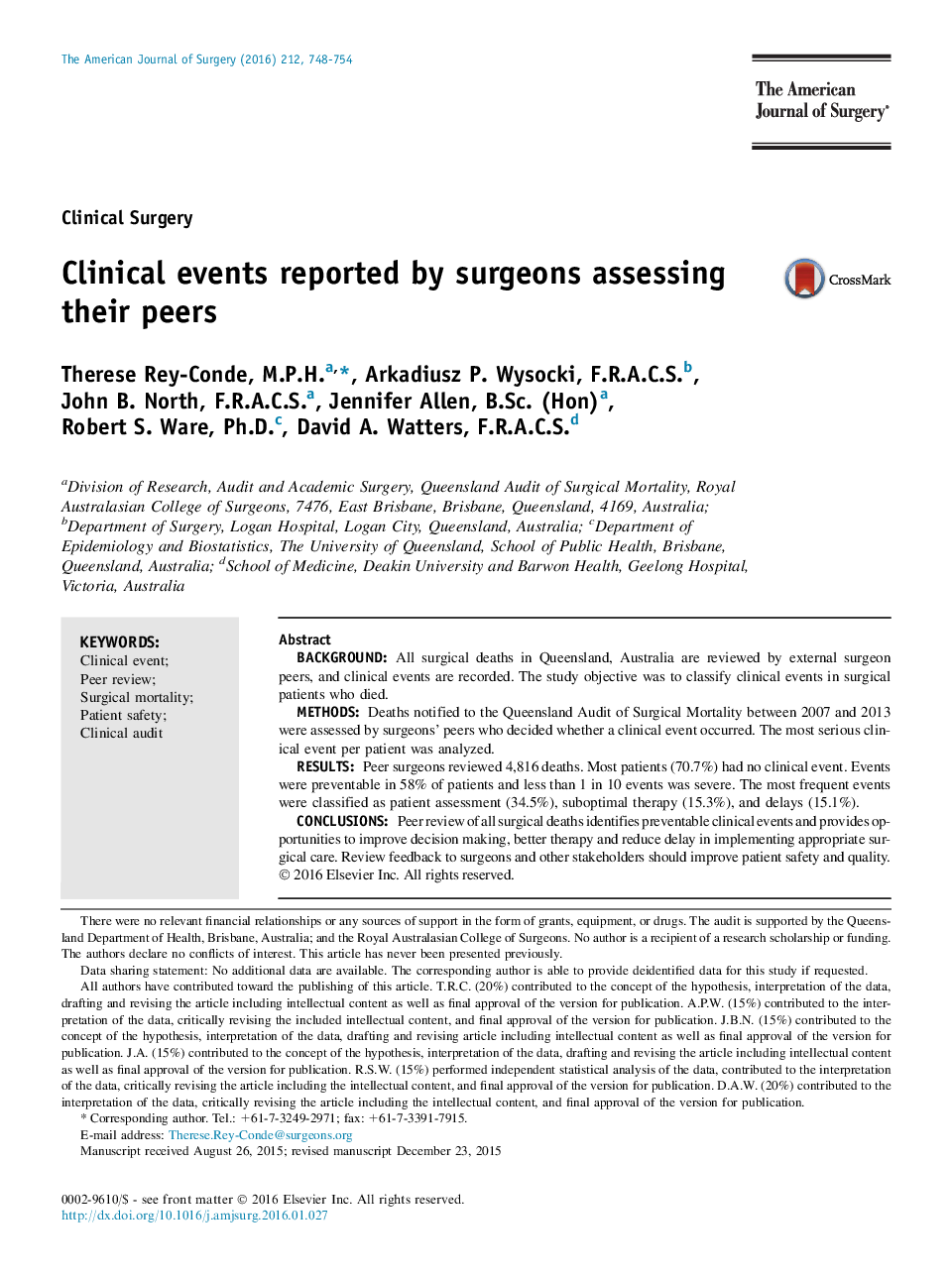| Article ID | Journal | Published Year | Pages | File Type |
|---|---|---|---|---|
| 4278065 | The American Journal of Surgery | 2016 | 7 Pages |
•Most patients who died had no clinical management events (70.7%).•The most frequent event was the decision to operate.•Peer-review feedback to surgeons contributes to improving surgical care.
BackgroundAll surgical deaths in Queensland, Australia are reviewed by external surgeon peers, and clinical events are recorded. The study objective was to classify clinical events in surgical patients who died.MethodsDeaths notified to the Queensland Audit of Surgical Mortality between 2007 and 2013 were assessed by surgeons' peers who decided whether a clinical event occurred. The most serious clinical event per patient was analyzed.ResultsPeer surgeons reviewed 4,816 deaths. Most patients (70.7%) had no clinical event. Events were preventable in 58% of patients and less than 1 in 10 events was severe. The most frequent events were classified as patient assessment (34.5%), suboptimal therapy (15.3%), and delays (15.1%).ConclusionsPeer review of all surgical deaths identifies preventable clinical events and provides opportunities to improve decision making, better therapy and reduce delay in implementing appropriate surgical care. Review feedback to surgeons and other stakeholders should improve patient safety and quality.
